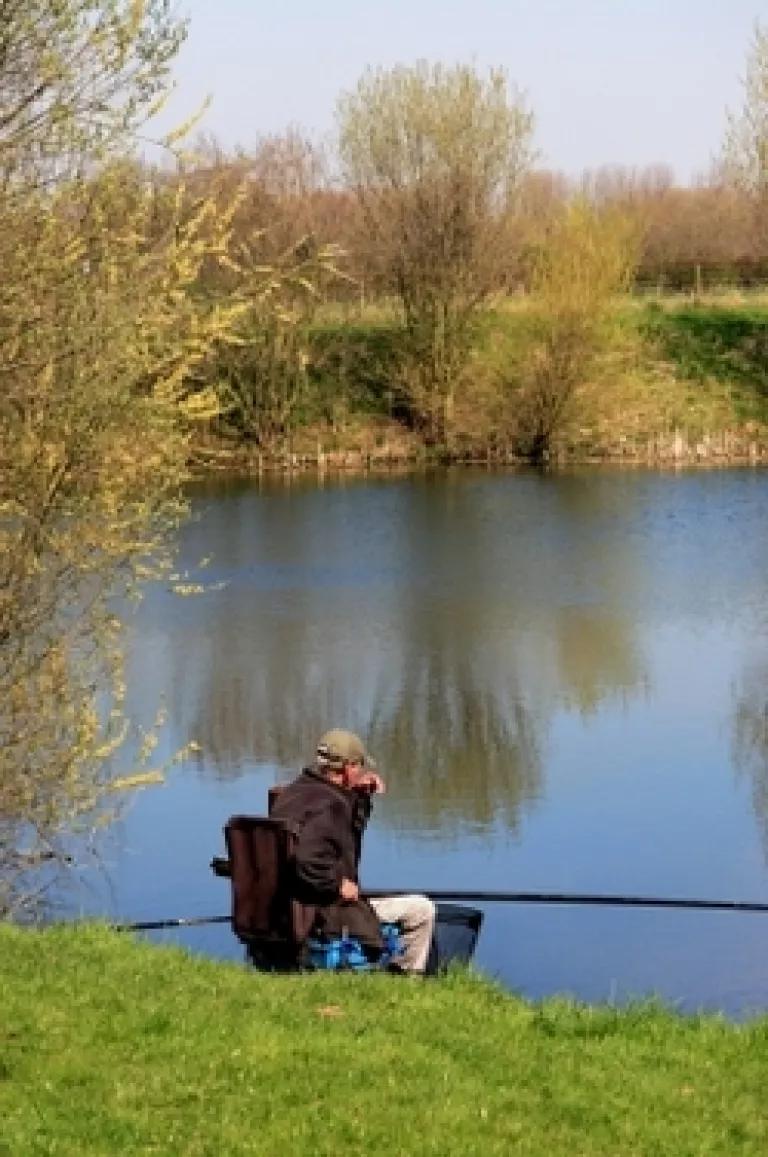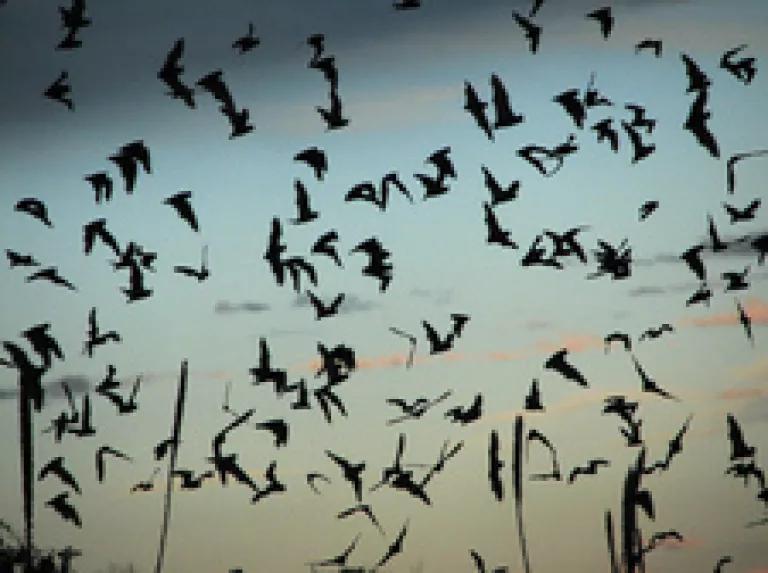Reason Takes a Holiday: Day 5: Daily Dings to our Health and Environment from the GOP's Government Shutdown

The Joker is certainly right about those who instigated the government shutdown. Every day,
we’re seeing more of its senseless but serious impacts.
Normally in early October, millions of Americans head out into the great outdoors to enjoy the glory of nature. But with the 401 national parks, monuments and historic sites shut down they’re finding gates across the roads and weekend getaway plans canceled. Also, federal databases aren’t being updated with water quality testing reports warning whether rivers, streams and lakes are unsafe. And research into widespread deaths of insect-eating bats is, for now, dead.
Those are just a few ways how the government shutdown is putting our health and environment in jeopardy, as I’ve been chronicling each day since it began.
It’s time House Republicans, who gave flight to this debacle, to recognize the turmoil and trouble they’ve caused and pass a clean budget, so our country can get back in business.
They Fought the Shutdown, and the Shutdown Won

The Pisgah Inn, an attractive 51-room inn, restaurant and country store perched on the southern leg of the Blue Ridge Parkway usually draws throngs of visitors during October for the fall foliage.
This week, the North Carolina mom and pop operation saw the government shutdown force closures of picnic areas and other businesses along the 469-mile parkway. America’s most visited site in the National Park Service draws 15 million people a year and October is one if the busiest months because of the turning of the leaves.
The Pisgah Inn operators, who have a concession contract to run the facility owned by the federal government, initially tried to keep it open. But the park service—out of cash for the fiscal year that began on October 1—gave them until 6 p.m. Thursday, and showed up to lock the entry gates. “They forced us to close,” an Inn employee said, adding they had to kick out some six dozen guests and spent Friday calling dozens more to cancel upcoming overnight reservations. They expect they’ll turn away “thousands of thousands” of visitors in the next days.
How Clean is My Waterway? Who Knows?

Ever walk up to a river or lake with a fishing rod or in a swimsuit and wonder, “Is it safe, clean and healthy?” Last year, the U.S. Environmental Protection Agency debuted a new website, “How’s My Waterway?” and smart phone app to make it easy to find out. Click on “Use My Location” or “Choose a Location” and the site would pull up water quality testing information for nearby or specific waterways.
Since the government shutdown forced the EPA to furlough more than 90 percent of its 17,000 employees. Updates of websites like “How’s My Waterway?” also were suspended, so today the information in that database about contaminated waters could be out of date.
That means, for example, the status of Illinois River’s Baron Fork in Oklahoma is unclear. The state has determined that the stream is violating primary contact recreation standards, meaning swimming, but EPA apparently hasn’t approved that conclusion and incorporated it into the database. The state found presence of Enterococcus, a kind of bacteria. The same kind of contamination was found on Spring Creek, Sallisaw Creek. Mill Creek and Wildhorse Creek, and Salt Creek, which violated standards for E. coli, another bacteria, but the federal database hasn’t been updated to show so.
Bat Devastation—Even scarier than Halloween

Federal researchers who are racing to save many American bat species from extinction got knocked off course by the shutdown. Bat populations, primarily in the Eastern U.S. are being devastated by a mysterious fungal disease called “white-nose syndrome,” which has already killed as many at 6.7 million bats, and some species, like the little brown bat, have nearly been wiped out. These bats swoop through the air feeding on swarms of insects, consuming half their body weight each night.
Scientists estimate that the bat collapse could cause financial losses in the range of $3.7-$53 billion a year, due to a combination of greater crop losses and the need for increased pesticide use to control pests that are no longer being eaten by bats.
Experts at the U.S. Geological Survey’s National Wildlife Health Center in Madison, Wis., have been struggling to find a solution before it’s too late. They were ordered off the job this week for the duration of the shutdown.
These examples do not mean we support selective funding of these programs. On the contrary, On Friday a number of environmental groups sent the following message to members of the House and Senate:
“On behalf of our millions of supporters, we strongly oppose the piecemeal funding of select government programs because it is not a credible solution to this self-imposed budget crisis. The only credible solution is one that opens the entire government for business. While a handful of extreme policymakers play politics, Americans and our environment suffer. The political gamesmanship driving the orchestration of damage control though these piecemeal proposals is not a sound fiscal policy. Congress must reject efforts to pick favorites, open the government, pay our nation’s debts, and find a balanced solution to deficit reduction that replaces the devastating cuts in the sequestration once and for all.”
**photo credits:freedigitalphotos.net, wikimedia, wikipedia, joker wiki.
